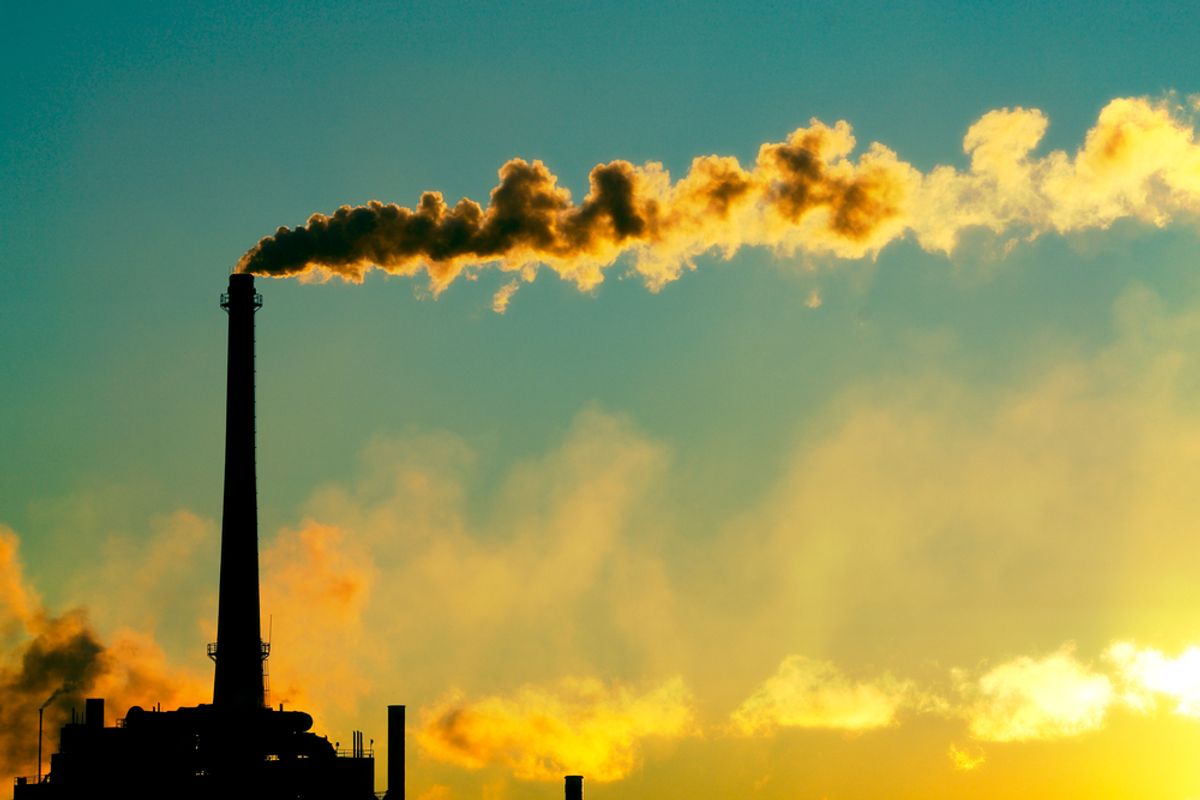Despite the best efforts of climate deniers committed to spreading misinformation, the scientific consensus on climate change -- that it's happening, and that human activity is to blame -- has yet to be convincingly challenged. So the newest study to examine scientists' views on global warming is, in some ways, old news: published in the journal Environmental Science and Technology, it draws on a survey of more than 1,800 climate scientists to once again document "overwhelming agreement" on those two main points.
The scientists were asked the question twice, in slightly different ways. But in both cases, the responses were similar. The more researchers said they'd published on the topic, moreover, the more likely they were to agree that greenhouse gas emissions are the main contributor to global warming:

The results more or less confirm the previous findings documenting the scientific consensus on man-made climate change, among them: the 2009 survey that found 86 percent of earth scientists, but 97.5 percent of actively publishing climatologists, believe" human activity is a significant contributing factor in changing mean global temperatures"; the 2010 paper in the Proceedings of the Natural Academy of Sciences that surveyed 200 scientists who've published "prolifically" on climate change, 97 to 98 percent of which agree it's happening; and the 2013 survey led by Skeptical Science's John Cook (a co-author on this new study), which reviewed 12,000 peer-reviewed climate science papers and found that 97 percent of those that discussed the cause of climate change attributed it to human activity.
This newest study, according to lead author Bart Verheggen, sets an even higher standard, as it looks specifically at the degree to which scientists thought greenhouse gas emissions were contributing to climate change (the graph on the right). It found that of those who had published 10 or more peer-reviewed papers (about half of those surveyed), 90 percent agreed that such emissions are either the largest or tied for the largest contributor. Verheggen also notes that climate contrarians were "somewhat overrepresented" and may have claimed to have published more than they actually have, which could have influenced the results.
Still, he wrote in a blog post summarizing the findings, "no matter how you slice it, scientists overwhelmingly agree that recent global warming is to a great extent human caused."
So why does something that seems so evident continue to come off as a debate? And more important, why does the public remain unconvinced? Verheggen points out that the public tends to lag behind the scientific community in accepting new theories, but the scientists' responses to another question are also noteworthy: the 43 respondents who characterized the contribution of greenhouse gases as insignificant, or even negative (meaning they believe in "global cooling"), reported receiving more media attention than those who thought emissions caused either slight, moderate or strong warming. Those who supported "strong warming," in fact, were in the majority (there were 1,042 of them), yet only about 15 percent of them said they received frequent media coverage -- while for the small minority of contrarians, that number doubled to 30 percent.
It's about as clear an example of the false balance in media coverage of climate change that you're likely to see: Because those scientists are in the minority, they're called upon more often to represent their unrepresentative views. Again, this confirms what others have found: When the IPCC report concluded that warming was "unequivocal," and man's contribution "extremely likely," Media Matters found that deniers, many of them un- or underqualified, represented 18 percent of those quoted in mainstream media coverage of the report. That's not portraying "both sides of the story" -- it's presenting a greatly distorted view of reality, as John Oliver brilliantly demonstrated. The BBC Trust, too, acknowledged as much last month when it ordered its journalists to stop giving equal airtime to fringe scientists. Because while there is a debate about climate change, it's about what we should do about it -- not whether it's happening. The more we perpetuate that false controversy, the longer it'll take us to start tackling the battle that really matters.



Shares